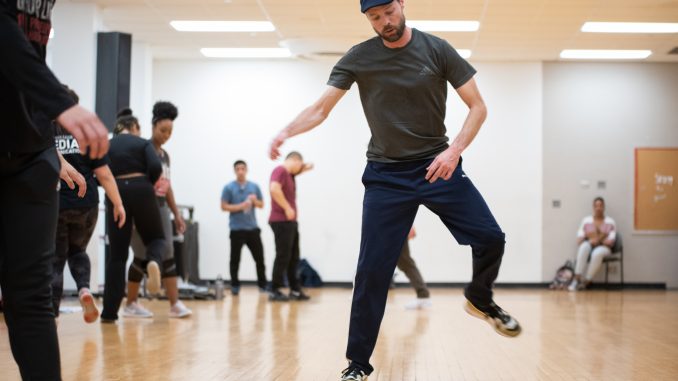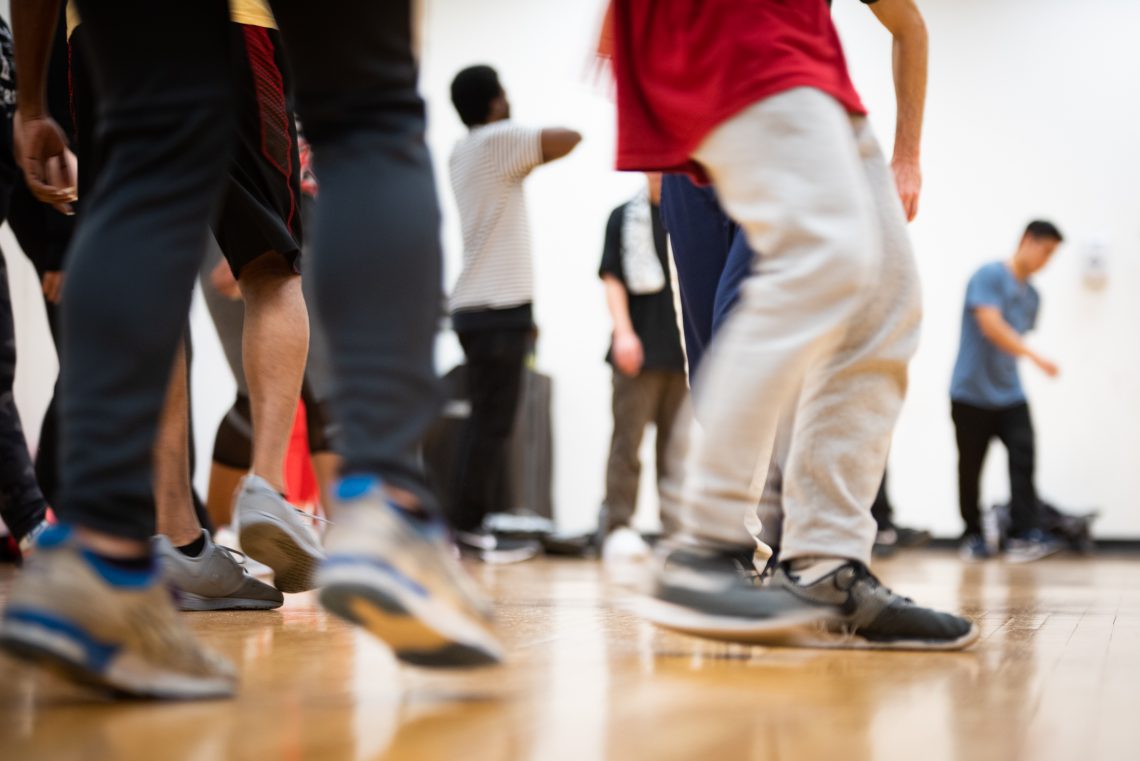
Breakdance, a hip-hop variation, originated in the Bronx in the late 1960s and 70s from martial arts moves developed by street gangs, according to Encyclopaedia Britannica.
“Since its mobilization, hip hop has impacted the entire world,” said Raymond Trinh, president of Temple Breakers, a dance student organization.
The organization held its first workshop on March 9 in Pearson Hall as part of their Breakin’ 101 series, which runs through March 14. The workshop was attended by 16 people.
The events are catered to both beginners and advanced dancers to learn foundational steps and enhance their skills while learning the culture and profession of breakdance, according to the event’s description.
“This year, I wanted to give a sort of holistic approach to breakdancing,” said Trinh, a junior supply chain and business management double major. “We’re kind of giving people on and off campus the opportunity, in this one week, to learn the basic fundamentals of dance and also get a little bit of background information on the ancestry.”
Jay “Rukkus” Jao, a dance teacher at I Am Phresh Dance Academy, led the March 9 workshop where he taught attendees how to execute breakdancing moves.
He began the first part of the workshop by demonstrating a series of warm-up dance moves to attendees. New and experienced dancers learned several dance steps in order to practice basic bottom-rock motions, like “the sweep” and “helicopter,” where a dancer swings their leg underneath their body in a circular motion.
Rukkus also spoke on teaching dance and participating in dance battles as the two most lucrative career paths within breakdance during the second half of the workshop. Then, he broke down attendees into two separate groups and tasked them with choosing their specific career paths within breakdancing, either a teacher or a dance battler.
He then assigned the teacher group and battle groups to teach each other a demonstrated move or battle each other, respectively. In the end, attendees reconvened to showcase everything they learned in a dance circle.

David Heller, an instructor who teaches Philadelphia dance experience at Temple University, attended the workshop to learn from the “best b-boy in Philly.”
“I’ve been in the game for 20 years and I’m still a student,” Heller said.
Temple Breakers promotes hip-hop with a focus on break dancing to provide practical knowledge on the dance and its culture, as well as the opportunity for community members to practice, Trinh said.
The Breakin’ 101 series was created to retain more members and bridge the gap between hip-hop academia and practitioners, he said. Temple Breakers hopes to advocate for a hip-hop minor in Boyer College of Music and Dance, Trinh added.
“Hip hop is the American culture, it’s kind of the melting pot of all cultures,” Trinh said. “I think there’s a different portrayal of hip hop that the media gives and I think academia should be able to bridge the gap between the true history of hip hop and some of the misconceptions that people have.”
Jerrell Lewis, a junior computer science major, attended the workshop as a new Temple Breakers member after attending three practices. Lewis said he recommends anyone interested in any form of dance to come to a workshop.
“It was great,” Lewis said. “I didn’t know what to expect to be quite honest but it went well. [Rukkus] started off slow and broke it down when we didn’t understand.”
Hip-hop continues to expand its impact across the globe due to its prevailing influence on youth culture, according to Encyclopaedia Britannica.
“The hip hop culture is the dominant culture in the media, as far as social media goes,” Trinh said. “I think there’s a very large amount of interest there, we just have to prove it with these kinds of events.”



Be the first to comment